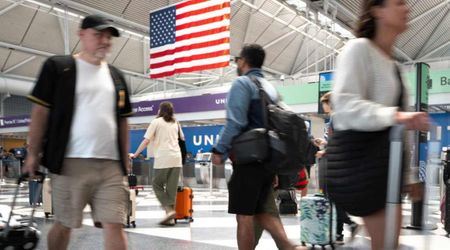Research Reveals 1 in 4 Americans Fall Victim to Tax Scams; Here's how to Stay Safe

As fraudulent schemes continue to target Americans in every walk of life, scammers are also on the prowl as people are attempting to figure out taxation in the United States, and nearly 25% of American citizens fall victim to online tax scams. In its 2024 Tax Scams study, McAfee surveyed 2,500 US adults and revealed alarming findings. For instance, in February alone, McAfee identified 146,000 malicious URLs related to tax, marking a 30% increase compared to December figures. Despite these growing threats, the company has remained vigilant in safeguarding its users, successfully blocking over one million attempts to access fake tax websites.

The findings of the study highlight the heightened activity of scammers during the tax filing season, posing significant challenges for ordinary citizens in discerning the legitimacy of messages they receive. According to the study, 54% of respondents struggle to differentiate between legitimate and illegitimate messages, with those falling into the trap more likely to suffer financial losses.
"People are now desensitized … so they feel like if they’re talking to a person, telling them to go click on a URL or something like that it’s probably more legit when it absolutely is not," explained Keatron Evans, principal of cybersecurity advisor at Infosec.
Shockingly, almost 68% of individuals who clicked on scam links ended up losing money, with 29% losing amounts ranging from $2,500 to $10,000, and 17% losing over $10,000 to such fraudulent schemes.

What makes matters worse is the increasing investment that Americans are making in cryptocurrencies, leading scammers to exploit this trend by sending cryptocurrency-related tax messages, resulting in 76% of respondents who clicked on such links losing money.
"A lot of times, these software are vulnerable to attack and exploitation because bad guys know that at this time of year, people are going to have these things installed on their computers. So they target them for vulnerabilities," Evans said.

To further deceive unsuspecting victims, scammers are employing advanced technologies like deepfake, utilizing AI-generated calls with native accents that make it difficult for individuals to discern their authenticity. The study found that 49% of respondents lack confidence in identifying deepfake videos and audio, with an alarming 29% unaware of the existence of such technology.
McAfee's Chief Technology Officer, Steve Grobman, emphasized the escalation of cybercriminal activity during tax season. "As tax season ramps up, so too does cybercriminal activity. What's new this year is the scale and sophistication of scams we're now seeing thanks to artificial intelligence," he said.
"From AI-generated robocalls with regional accents to very realistic and convincing fake emails, websites, and scam texts, cybercrooks are utilizing all the AI tools available to them, and so too should consumers to stay safe."

"With less than half of people feeling confident about the tax filing process, scammers are counting on uncertain consumers clicking on unsafe links during the rush for refunds," Grobman said.
"We urge people to balance convenience with caution, practice good cyber hygiene, and use the latest in AI-powered online protection to keep their privacy, identity, and personal information safe to help ensure a scam-free tax season," he advised.























